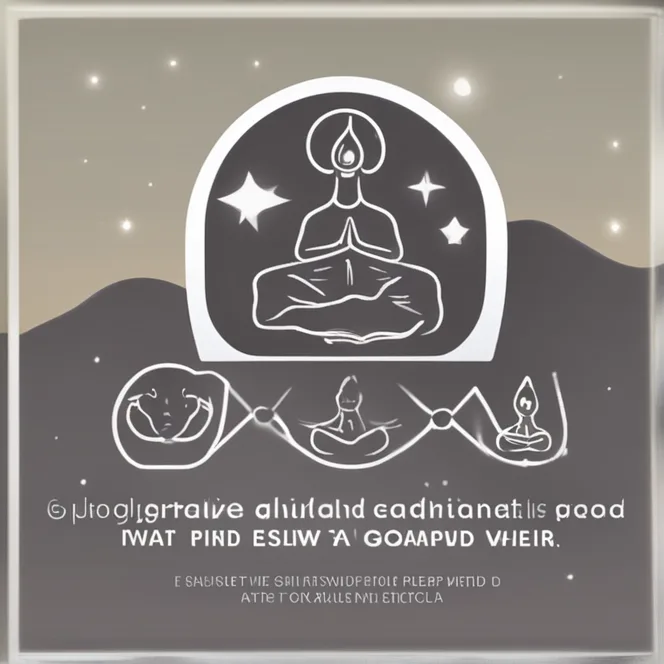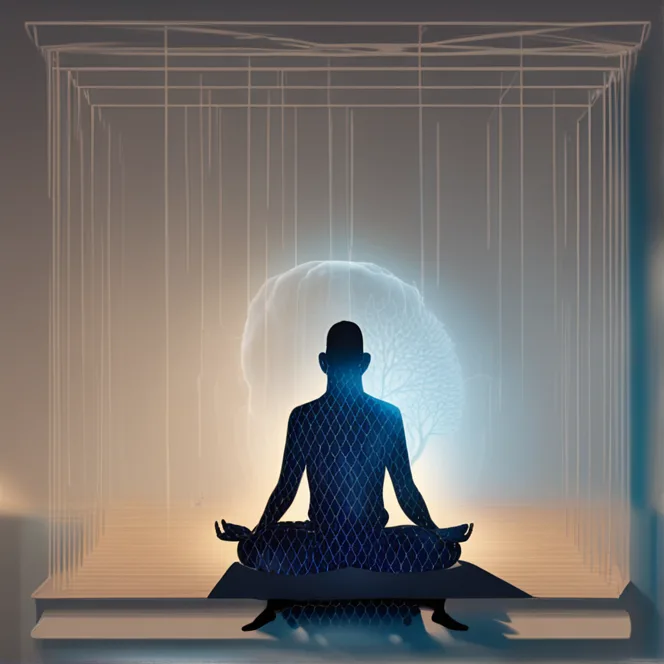
Meditative Sleep Practices
Explore how meditation enhances sleep and overall well-being through mindful practices.
article by Hina Kurosawa
The Intersection of Sleep and Meditation
Meditation and sleep are both essential for maintaining mental and physical health. While sleep is a natural process necessary for rejuvenation, meditation is an intentional practice aimed at calming the mind and body. Integrating meditation into your sleep routine can significantly improve the quality of your rest. Clinical studies have shown that meditation can decrease the time it takes to fall asleep and increase the duration of deep sleep. By incorporating meditative techniques before bedtime, individuals can create a peaceful transition from the busyness of the day to a restful night.

Mindfulness Meditation for Better Sleep
Mindfulness meditation is a practice that involves focusing on the present moment and accepting it without judgment. Engaging in mindfulness before bed can help manage the racing thoughts that often lead to insomnia. By paying attention to your breathing and gently bringing your focus back when your mind wanders, you create a state of relaxation conducive to sleep. Research suggests that a consistent mindfulness practice can not only aid in falling asleep more quickly but can also enhance the overall quality of sleep, leading to greater daytime alertness and concentration.

Guided Meditation as a Sleep Aid
For those who find it challenging to direct their own meditation, guided meditation offers a structured way to relax. Through the use of a recorded voice or a live instructor, participants are led through a series of relaxation techniques and visualizations. Engaging in a guided meditation routine at bedtime can help soothe the mind and release physical tension. This practice serves as an effective tool for combating the stress and anxiety that often inhibit restful sleep, guiding the listener into a state of deep relaxation that naturally progresses to sleep.

The Role of Body Scan Meditation
Body scan meditation is another technique that can be utilized to encourage restful sleep. This method involves mentally scanning your body from head to toe, observing any sensations or discomfort. The practice encourages awareness of the body, promoting relaxation of each part. By methodically focusing on different areas, people often find that the body scan not only reduces tension but can also distract from the worries and lists that may otherwise keep them awake. Consequently, the mind quiets down, paving the way for a quicker and more restorative slumber.

Yoga Nidra for Deep Sleep
Yoga Nidra, also known as yogic sleep, is a form of meditation intended to induce a state of deep relaxation while remaining conscious. Typically practiced lying down, Yoga Nidra guides practitioners through stages of relaxation and intention setting. This meditative practice has been found to reduce insomnia by allowing both body and mind to sink into tranquility. Those who consistently practice Yoga Nidra may experience improved sleep patterns and a reduction in the symptoms associated with chronic sleep disorders.
Cultivating a Meditation Habit for Sleep
Developing a regular meditation practice may take effort, but the benefits to sleep and overall health are manifold. Start with short sessions and gradually increase the duration as you become more comfortable with the practice. Creating a soothing environment, setting a fixed schedule, and being patient with progress can also promote the integration of meditation into your nightly routine. Over time, the boundary between meditation and sleep begins to blur, allowing for a seamless transition to deep, restorative sleep.
Published: 12/8/2023
Modified: 12/8/2023
More predictions
Come back here soon to learn more about yourself and your future


Finding Equilibrium: Meditation For Emotional Balance
Explore meditation techniques to achieve emotional balance and enhance well-being in our increasingly hectic world.


The Lifespan Boosting Benefits Of Meditation
Explore the intersection of meditation and longevity, a dive into how this ancient practice may contribute to a longer and healthier life.


Transforming Mind & Soul: The Essence Of Meditation
Discover how incorporating meditation into your daily routine can lead to profound life changes and enhanced well-being.